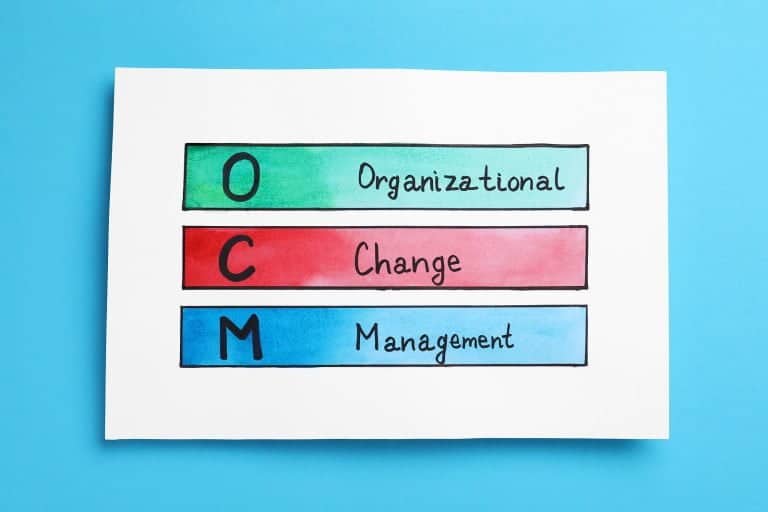Any organization that’s embarking on a new project seeks a methodology to help it manage its tasks effectively. Choosing the proper method for the project that aligns with the organizational strategic goals can result in improved business outcomes. So, this article will guide you in selecting the appropriate project management methodology that suits your project’s needs.
Table of Contents
ToggleWhat Is Project Management Methodology?
A project management methodology consists of rules and practices to effectively plan, manage, and execute any project. These methodologies can be considered the framework that guides you to manage your project efficiently and achieve the desired goal within the set timeframe.
Various project management methodologies are available today with their unique rules, principles, and working paradigms. Organizations can opt for any specific approach to execute the project. However, they can also combine elements of different methodologies to create a hybrid project management approach tailored to specific projects’ needs.
How to Choose the Right Project Management Methodology
- Analyze the Need of Your Project
One of the foremost steps to determine the methodology for your project is to gather all information about the project, including the project’s goal, resources required, budget, etc. The more details you get about the project, the easier it will be to choose the correct methodology.
You can gather details like:
- Budget
- Timeline
- Client’s details
- The complexity of the project
- Objective
- Stakeholders involvement
- Resources required
- Skills and roles of team members
Equipped with this information, you can create an outline of your project structure so that you can assess which methodology fits with the project’s requirements.
- Identify and Use the Key Variables
When you have gathered all the rudimentary information about your project, now it’s time to ascertain the key variables. Once you grasp the fundamental variables of the project, you can quickly prioritize different components. This helps you select the project management methodology that resonates with the priorities of the project.
- Choose the Methodology Based on Your Industry Type
The type of industry your organization belongs to can help you choose the methodology for your projects. Sectors that are ever-changing and embrace new technologies with time should go for flexible methodologies like agile that can easily adapt to changes.
Whereas, if your organization works on projects with fixed resources and requirements and barely requires any changes after the goal is set, you can find the linear approaches like waterfall more convenient.
- Pay Heed to Risk and Rewards
Based on the historical data of the previous projects, you can forecast the imminent risks and contingencies that may come up with each methodology. Review the previous project’s records to understand what risks and rewards you may experience when using different methods.
You may discuss with your team members how many risks to assume and which methodology would be best while considering such anticipated risks.
- Narrow Down Choices With a Comparison Chart
List down all the project management methodologies that you may opt for and then create a comparison chart accordingly. This chart can comprise the pros & cons, complexity levels, and workflow structures of those methodologies.
For example, if the project looks quite complex with a probability of frequent changes in the future, an approach like extreme programming can fit the bill. Whereas, if the end goal of your project is clear, with no alterations required, then a waterfall approach can do the trick.
This comparison chart can help you narrow your options and select a methodology that resonates with your requirements and expectations.
- Understand the Need of Your Project
The type of project you manage plays a major role in determining which methodology will be most suitable. A project manager should consider the parameters like length, timeline, budget, and project complexity.
These metrics will help them discern if the selected methodology can help in delivering the project’s outcome within the allotted framework while staying close to the organizational goals.
- Consider the Size of the Team
The team size can help you ascertain the right methodology for your project. For instance, projects with small size teams can efficiently work with scrum and PMI/PMBOK (Project Management Body of Knowledge) methodologies. In contrast, large projects with large teams should opt for methodologies that require more team members, such as six sigma.
In addition, methodologies like Kanban can be opted, regardless of the team size and length of the project.
- Nature of the Project and Deliverables
The key to a successful project is to understand the needs of your client, such as whether your project would need frequent changes or it has a clear and pre-defined goal with almost no changes required amid the workflow.
For example, if your client requires changes more often and the deliverable looks ambiguous, then a methodology like Scrum can nurture the project’s needs more easily.
Here Are Some of the Most Popular Project Management Methodologies
- Agile
As the name suggests, agile is the ability to respond to changes quickly, and thus this approach involves iterative steps to complete the project. This methodology completes the entire project in a short period, known as iterations. At the end of each iteration, the team needs to deliver a stipulated deliverable. This approach allows the team to respond to changes or redefine priorities while the project is in progress.
- Waterfall
A waterfall is a linear approach in which the progress of a project flows in a single direction. In this technique, a set of tasks needs to be accomplished before the start of the next phase, i.e., the team can move to the project’s next stage only after completing the current stage.
- Scrum
Scrum is a subset of agile and is considered one of the most flexible approaches to project management. Tasks in this methodology are completed in sprints. Sprint is a time frame of 1-4 weeks in which the scrum team focuses on achieving a specific goal. After each sprint, the team conducts a scrum meeting to evaluate whether project priorities need redefined.
- Learn
The lean methodology emphasizes using the minimum resources to complete a project in order to reduce resource wastage. This approach is developed to address and resolve the common 3M issues of resource wastage:
- Muda (any activity that doesn’t add value),
- Mura (lack of uniformity),
- Muri (excessive use of employees and equipment)
- Kanban
This methodology allows the project manager to analyze the workflow and project progress using a tool called Kanban board. This tool provides a visual of how each task or set of tasks progresses at any time. Thus, this methodology provides a holistic view of project progress at different times and helps address potential bottlenecks.
- Critical Path Method
In this methodology, the project manager determines a critical path, which is the longest sequence of tasks to complete any project. It also shows the shortest possible time to complete the project. Team members must follow this path to complete the project within the stipulated time frame.
Final Thoughts
Choosing the appropriate project management methodologies plays a significant role in determining the feat of your project. Therefore, make sure to spend some time assessing different methodologies to make a prudent decision regarding which one can cater to your needs and help you complete your project successfully.
FAQ
A: When selecting a project management methodology, consider factors such as project size, complexity, team structure, industry requirements, and stakeholder expectations. These factors will help you determine which methodology aligns best with your project’s needs.
A: There are several popular project management methodologies, including Waterfall, Agile, Scrum, Kanban, and Lean. A waterfall is a sequential approach with distinct phases, while Agile methodologies emphasize adaptability, collaboration, and iterative development. Scrum focuses on self-organizing teams and short iterations, Kanban visualizes workflows, and Lean aims to eliminate waste and optimize efficiency.
A: To assess which methodology suits your project, evaluate its characteristics, such as the level of uncertainty, the need for flexibility, the availability of resources, and the project’s scope and goals. Additionally, consider the team’s experience and the organization’s culture to ensure a proper fit.
A: Yes, it is possible to combine different project management methodologies to suit your project’s unique needs. This is often referred to as a hybrid approach. For example, you may use a Waterfall methodology for a well-defined phase and then transition to an Agile methodology for the development and testing phases to accommodate changes and feedback.
A: While project management methodologies are generally applicable across various industries, certain sectors have methodologies tailored to their specific needs. For example, the PRINCE2 methodology is widely used in the government and public sector, while Six Sigma is commonly employed in manufacturing and process improvement projects. It’s essential to consider industry-specific methodologies if they exist and align with your project’s requirements.





